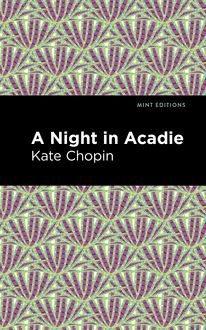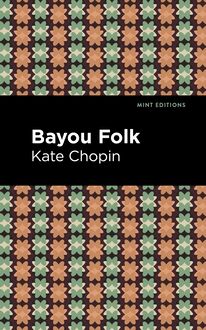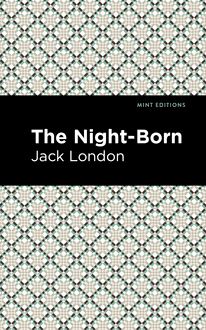-
 Univers
Univers
-
 Ebooks
Ebooks
-
 Livres audio
Livres audio
-
 Presse
Presse
-
 Podcasts
Podcasts
-
 BD
BD
-
 Documents
Documents
-
- Cours
- Révisions
- Ressources pédagogiques
- Sciences de l’éducation
- Manuels scolaires
- Langues
- Travaux de classe
- Annales de BEP
- Etudes supérieures
- Maternelle et primaire
- Fiches de lecture
- Orientation scolaire
- Méthodologie
- Corrigés de devoir
- Annales d’examens et concours
- Annales du bac
- Annales du brevet
- Rapports de stage
La lecture à portée de main
Vous pourrez modifier la taille du texte de cet ouvrage
Découvre YouScribe en t'inscrivant gratuitement
Je m'inscrisDécouvre YouScribe en t'inscrivant gratuitement
Je m'inscrisEn savoir plus
Vous pourrez modifier la taille du texte de cet ouvrage
En savoir plus

Description
O. Henry delivers a popular selection of character-driven stories that capture the humor and heart of everyday citizens as they face unusual or extraordinary circumstances. He offers a unique point-of-view creating a dynamic narrative full of twists and turns.Sixes and Sevens features 25 of O. Henry’s most notable works. This includes “The Last of the Troubadours,” “Makes the Whole World Kin,” and “The Duplicity of the Hargraves.” Each story is more captivating than the next with surprising developments that keep readers guessing. Henry pulls from America’s vast history and landscape to create these remarkable tales. He offers a contemporary take on timeless conflicts, fears and struggles. With Sixes and Sevens, O. Henry creates a distinct world balancing realism and escapism. He’s a masterful storyteller who infuses elements of humor, irony and drama. His writings are full of entertaining circumstances and delightful characters that make for an enjoyable read. With an eye-catching new cover, and professionally typeset manuscript, this edition of Sixes and Sevens, is both modern and readable.
Sujets
Informations
| Publié par | Mint Editions |
| Date de parution | 07 mai 2021 |
| Nombre de lectures | 0 |
| EAN13 | 9781513274980 |
| Langue | English |
| Poids de l'ouvrage | 3 Mo |
Informations légales : prix de location à la page 0,0500€. Cette information est donnée uniquement à titre indicatif conformément à la législation en vigueur.
Extrait
Sixes and Sevens
O. Henry
Sixes and Sevens was first published in 1911.
This edition published by Mint Editions 2020.
ISBN 9781513269986 | E-ISBN 9781513274980
Published by Mint Editions®
minteditionbooks.com
Publishing Director: Jennifer Newens
Design & Production: Rachel Lopez Metzger
Project Manager: Micaela Clark
Typesetting: Westchester Publishing Services
C ONTENTS I. T HE L AST OF THE T ROUBADOURS II. T HE S LEUTHS III. W ITCHES ’ L OAVES IV. T HE P RIDE OF THE C ITIES V. H OLDING U P A T RAIN VI. U LYSSES AND THE D OGMAN VII. T HE C HAMPION OF THE W EATHER VIII. M AKES THE W HOLE W ORLD K IN IX. A T A RMS WITH M ORPHEUS X. A G HOST OF A C HANCE XI. J IMMY H AYES AND M URIEL XII. T HE D OOR OF U NREST XIII. T HE D UPLICITY OF H ARGRAVES XIV. L ET M E F EEL Y OUR P ULSE XV. O CTOBER AND J UNE XVI. T HE C HURCH WITH AN O VERSHOT -W HEEL XVII. N EW Y ORK BY C AMP F IRE L IGHT XVIII. T HE A DVENTURES OF S HAMROCK J OLNES XIX. T HE L ADY H IGHER U P XX. T HE G REATER C ONEY XXI. L AW AND O RDER XXII. T RANSFORMATION OF M ARTIN B URNEY XXIII. T HE C ALIPH AND THE C AD XXIV. T HE D IAMOND OF K ALI XXV. T HE D AY W E C ELEBRATE
I
T HE L AST OF THE T ROUBADOURS
Inexorably Sam Galloway saddled his pony. He was going away from the Rancho Altito at the end of a three-months’ visit. It is not to be expected that a guest should put up with wheat coffee and biscuits yellow-streaked with saleratus for longer than that. Nick Napoleon, the big Negro man cook, had never been able to make good biscuits. Once before, when Nick was cooking at the Willow Ranch, Sam had been forced to fly from his cuisine , after only a six-weeks’ sojourn.
On Sam’s face was an expression of sorrow, deepened with regret and slightly tempered by the patient forgiveness of a connoisseur who cannot be understood. But very firmly and inexorably he buckled his saddle-cinches, looped his stake-rope and hung it to his saddle-horn, tied his slicker and coat on the cantle, and looped his quirt on his right wrist. The Merrydews (householders of the Rancho Altito), men, women, children, and servants, vassals, visitors, employ é s, dogs, and casual callers were grouped in the “gallery” of the ranch house, all with faces set to the tune of melancholy and grief. For, as the coming of Sam Galloway to any ranch, camp, or cabin between the rivers Frio or Bravo del Norte aroused joy, so his departure caused mourning and distress.
And then, during absolute silence, except for the bumping of a hind elbow of a hound dog as he pursued a wicked flea, Sam tenderly and carefully tied his guitar across his saddle on top of his slicker and coat. The guitar was in a green duck bag; and if you catch the significance of it, it explains Sam.
Sam Galloway was the Last of the Troubadours. Of course you know about the troubadours. The encyclop æ dia says they flourished between the eleventh and the thirteenth centuries. What they flourished doesn’t seem clear—you may be pretty sure it wasn’t a sword: maybe it was a fiddlebow, or a forkful of spaghetti, or a lady’s scarf. Anyhow, Sam Galloway was one of ’em.
Sam put on a martyred expression as he mounted his pony. But the expression on his face was hilarious compared with the one on his pony’s. You see, a pony gets to know his rider mighty well, and it is not unlikely that cow ponies in pastures and at hitching racks had often guyed Sam’s pony for being ridden by a guitar player instead of by a rollicking, cussing, all-wool cowboy. No man is a hero to his saddle-horse. And even an escalator in a department store might be excused for tripping up a troubadour.
Oh, I know I’m one; and so are you. You remember the stories you memorize and the card tricks you study and that little piece on the piano—how does it go?—ti-tum-te-tum-ti-tum—those little Arabian Ten Minute Entertainments that you furnish when you go up to call on your rich Aunt Jane. You should know that omnæ personæ in tres partes divisæ sunt . Namely: Barons, Troubadours, and Workers. Barons have no inclination to read such folderol as this; and Workers have no time: so I know you must be a Troubadour, and that you will understand Sam Galloway. Whether we sing, act, dance, write, lecture, or paint, we are only troubadours; so let us make the worst of it.
The pony with the Dante Alighieri face, guided by the pressure of Sam’s knees, bore that wandering minstrel sixteen miles southeastward. Nature was in her most benignant mood. League after league of delicate, sweet flowerets made fragrant the gently undulating prairie. The east wind tempered the spring warmth; wool-white clouds flying in from the Mexican Gulf hindered the direct rays of the April sun. Sam sang songs as he rode. Under his pony’s bridle he had tucked some sprigs of chaparral to keep away the deer flies. Thus crowned, the long-faced quadruped looked more Dantesque than before, and, judging by his countenance, seemed to think of Beatrice.
Straight as topography permitted, Sam rode to the sheep ranch of old man Ellison. A visit to a sheep ranch seemed to him desirable just then. There had been too many people, too much noise, argument, competition, confusion, at Rancho Altito. He had never conferred upon old man Ellison the favour of sojourning at his ranch; but he knew he would be welcome. The troubadour is his own passport everywhere. The Workers in the castle let down the drawbridge to him, and the Baron sets him at his left hand at table in the banquet hall. There ladies smile upon him and applaud his songs and stories, while the Workers bring boars’ heads and flagons. If the Baron nods once or twice in his carved oaken chair, he does not do it maliciously.
Old man Ellison welcomed the troubadour flatteringly. He had often heard praises of Sam Galloway from other ranchmen who had been complimented by his visits, but had never aspired to such an honour for his own humble barony. I say barony because old man Ellison was the Last of the Barons. Of course, Mr. Bulwer-Lytton lived too early to know him, or he wouldn’t have conferred that sobriquet upon Warwick. In life it is the duty and the function of the Baron to provide work for the Workers and lodging and shelter for the Troubadours.
Old man Ellison was a shrunken old man, with a short, yellow-white beard and a face lined and seamed by past-and-gone smiles. His ranch was a little two-room box house in a grove of hackberry trees in the lonesomest part of the sheep country. His household consisted of a Kiowa Indian man cook, four hounds, a pet sheep, and a half-tamed coyote chained to a fence-post. He owned 3,000 sheep, which he ran on two sections of leased land and many thousands of acres neither leased nor owned. Three or four times a year some one who spoke his language would ride up to his gate and exchange a few bald ideas with him. Those were red-letter days to old man Ellison. Then in what illuminated, embossed, and gorgeously decorated capitals must have been written the day on which a troubadour—a troubadour who, according to the encyclop æ dia, should have flourished between the eleventh and the thirteenth centuries—drew rein at the gates of his baronial castle!
Old man Ellison’s smiles came back and filled his wrinkles when he saw Sam. He hurried out of the house in his shuffling, limping way to greet him.
“Hello, Mr. Ellison,” called Sam cheerfully. “Thought I’d drop over and see you a while. Notice you’ve had fine rains on your range. They ought to make good grazing for your spring lambs.”
“Well, well, well,” said old man Ellison. “I’m mighty glad to see you, Sam. I never thought you’d take the trouble to ride over to as out-of-the-way an old ranch as this. But you’re mighty welcome. ’Light. I’ve got a sack of new oats in the kitchen—shall I bring out a feed for your hoss?”
“Oats for him?” said Sam, derisively. “No, sir-ee. He’s as fat as a pig now on grass. He don’t get rode enough to keep him in condition. I’ll just turn him in the horse pasture with a drag rope on if you don’t mind.”
I am positive that never during the eleventh and thirteenth centuries did Baron, Troubadour, and Worker amalgamate as harmoniously as their parallels did that evening at old man Ellison’s sheep ranch. The Kiowa’s biscuits were light and tasty and his coffee strong. Ineradicable hospitality and appreciation glowed on old man Ellison’s weather-tanned face. As for the troubadour, he said to himself that he had stumbled upon pleasant places indeed. A well-cooked, abundant meal, a host whom his lightest attempt to entertain seemed to delight far beyond the merits of the exertion, and the reposeful atmosphere that his sensitive soul at that time craved united to confer upon him a satisfaction and luxurious ease that he had seldom found on his tours of the ranches.
After the delectable supper, Sam untied the green duck bag and took out his guitar. Not by way of payment, mind you—neither Sam Galloway nor any other of the true troubadours are lineal descendants of the late Tommy Tucker. You have read of Tommy Tucker in the works of the esteemed but often obscure Mother Goose. Tommy Tucker sang for his supper. No true troubadour would do that. He would have his supper, and then sing for Art’s sake.
Sam Galloway’s repertoire comprised about fifty funny stories and between thirty and forty songs. He by no means stopped there. He could talk through twenty cigarettes on any topic that you brought up. And he never sat up when he could lie down; and never stood when he could sit. I am strongly disposed to linger with him, for I am drawing a portrait as well as a blunt pencil and a tattered thesaurus will allow.
I wish you could have seen him: he was small and tough and inactive beyond the power of imagination to conceive. He wore an ultramarine-blue woollen shirt laced down the front with a pearl-gray, exaggerated sort of shoestring, indestructible brown duck clothes, inevitable high-heeled boots with Mexican spurs, and a
-
 Univers
Univers
-
 Ebooks
Ebooks
-
 Livres audio
Livres audio
-
 Presse
Presse
-
 Podcasts
Podcasts
-
 BD
BD
-
 Documents
Documents
-
Jeunesse
-
Littérature
-
Ressources professionnelles
-
Santé et bien-être
-
Savoirs
-
Education
-
Loisirs et hobbies
-
Art, musique et cinéma
-
Actualité et débat de société
-
Jeunesse
-
Littérature
-
Ressources professionnelles
-
Santé et bien-être
-
Savoirs
-
Education
-
Loisirs et hobbies
-
Art, musique et cinéma
-
Actualité et débat de société
-
Actualités
-
Lifestyle
-
Presse jeunesse
-
Presse professionnelle
-
Pratique
-
Presse sportive
-
Presse internationale
-
Culture & Médias
-
Action et Aventures
-
Science-fiction et Fantasy
-
Société
-
Jeunesse
-
Littérature
-
Ressources professionnelles
-
Santé et bien-être
-
Savoirs
-
Education
-
Loisirs et hobbies
-
Art, musique et cinéma
-
Actualité et débat de société
- Cours
- Révisions
- Ressources pédagogiques
- Sciences de l’éducation
- Manuels scolaires
- Langues
- Travaux de classe
- Annales de BEP
- Etudes supérieures
- Maternelle et primaire
- Fiches de lecture
- Orientation scolaire
- Méthodologie
- Corrigés de devoir
- Annales d’examens et concours
- Annales du bac
- Annales du brevet
- Rapports de stage



















